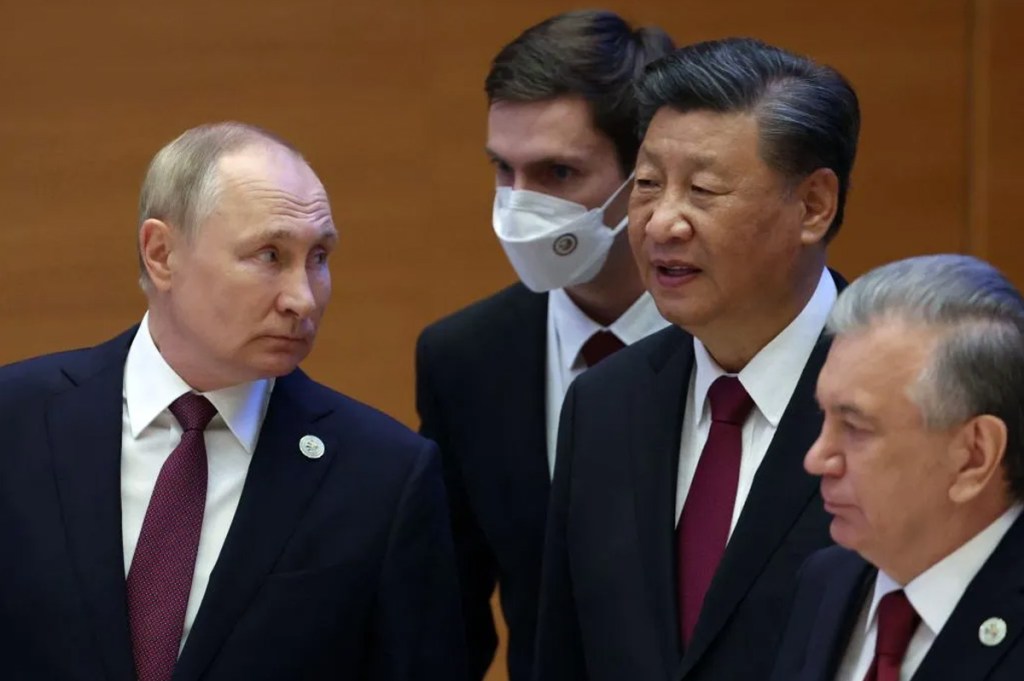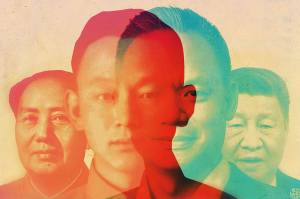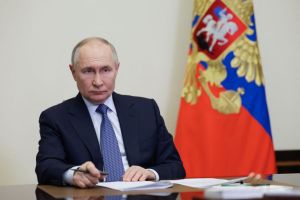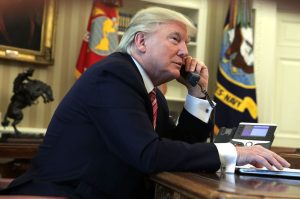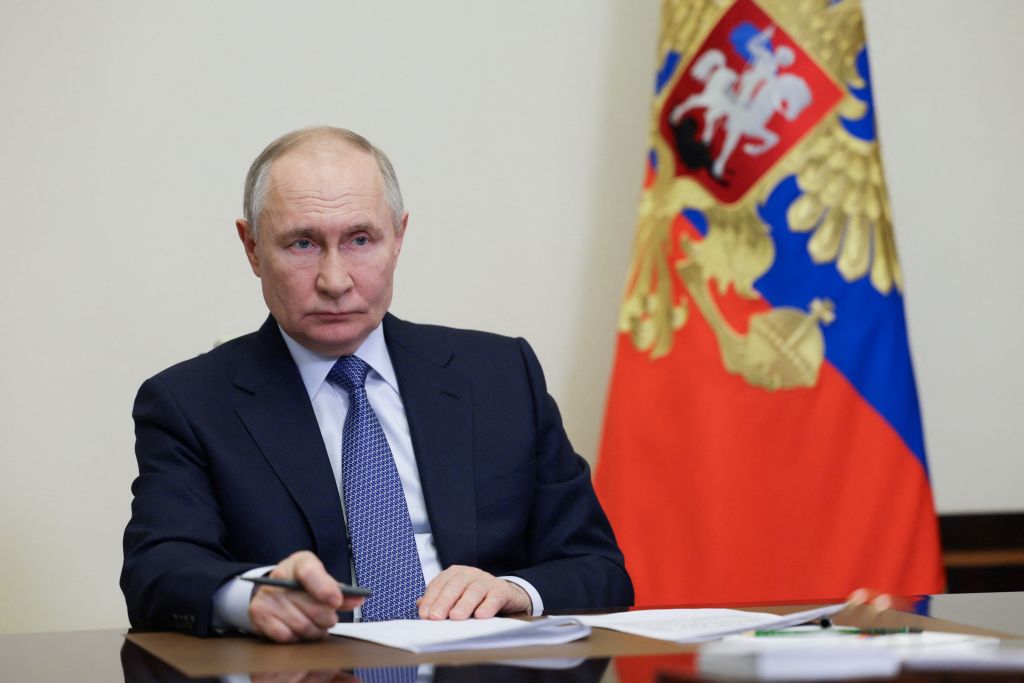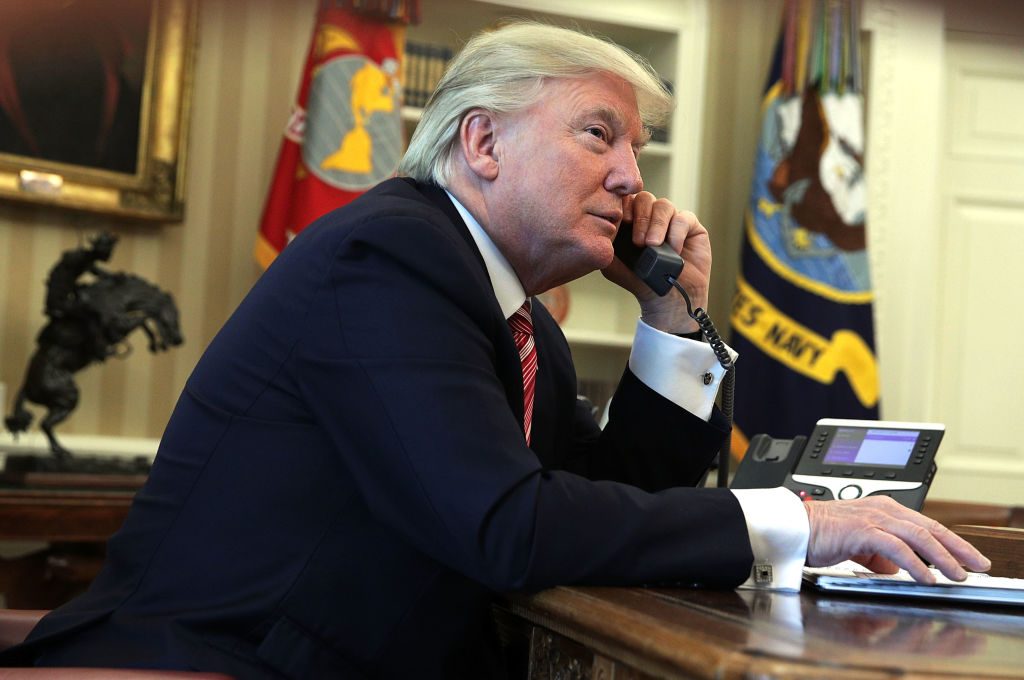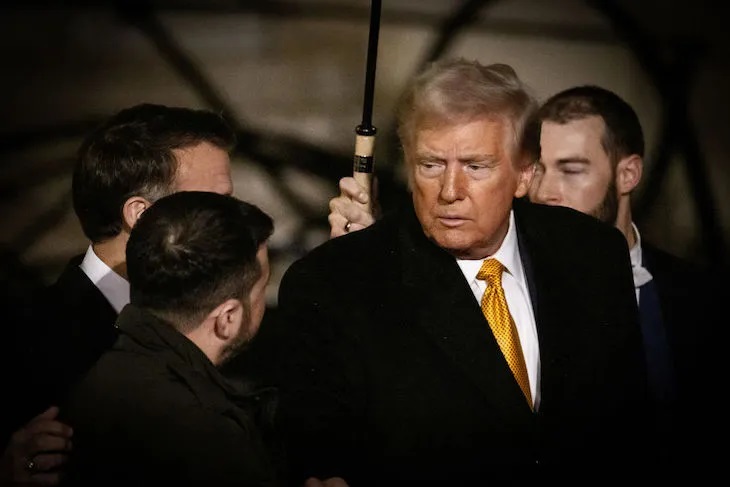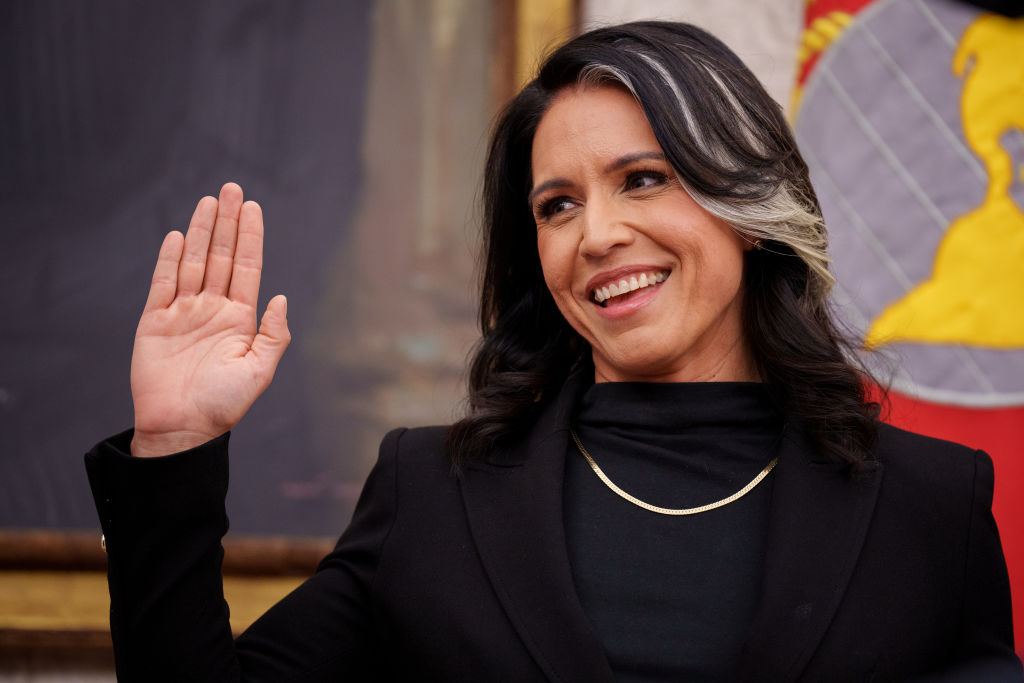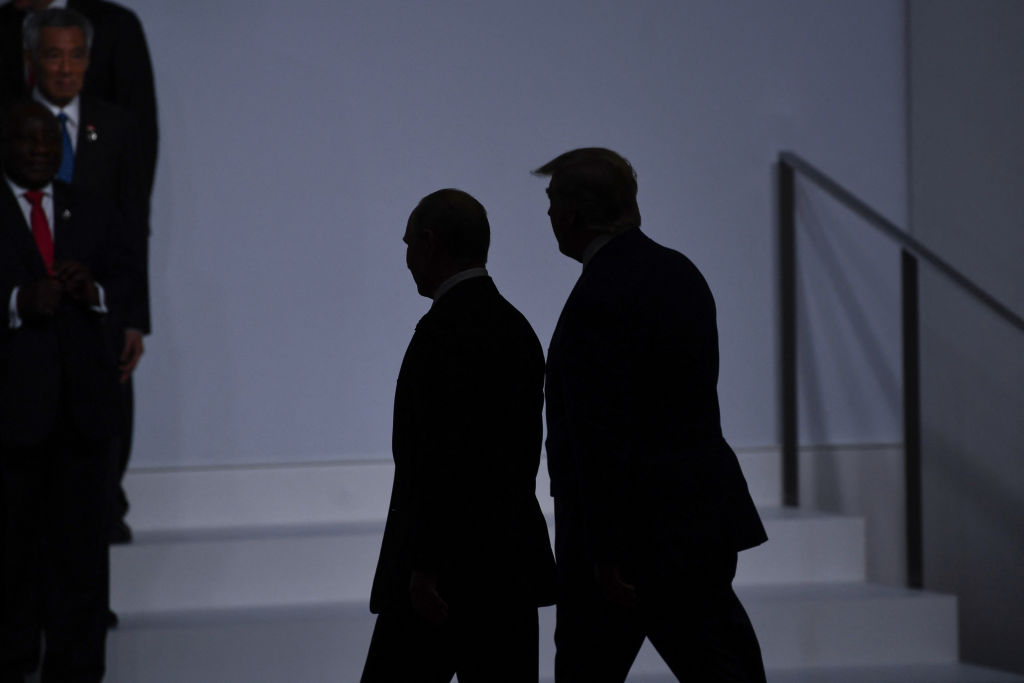It hardly seems like the most propitious time for Xi Jinping to be visiting Moscow. There’s an international arrest warrant out for his host Vladimir Putin for war crimes, and the man Xi has described as his “best friend” spent the weekend inspecting land he’s snatched from Ukraine — in gross violation of the principles of sovereignty and territorial integrity, which Xi endlessly trumpets.
On the eve of today’s formal talks in the Russian capital, the US said Xi should press Putin to end his barbarity. “We hope that President Xi will press President Putin to cease bombing Ukrainian cities, hospitals and schools, to halt the war crimes and atrocities and to withdraw his troops,” said John Kirby, the White House’s National Security Council spokesman.
That’s wishful thinking. Though every word from their meetings, every nuance, will no doubt be pored over in the spirit of Kremlinologists of yesteryear for any evidence of emerging differences, real or imagined.
Putin will play up what has been described as a partnership “without limits.” He may even play lip-service to any Chinese suggestion of a ceasefire, though this would merely consolidate Putin’s illegal occupation and is unlikely to be observed by either side. In private the Russian leader will be pressing Xi for more material support. Moscow wants Chinese arms and ammunition, particularly artillery shells and attack drones to replace its diminishing stocks. China, with its strong military-industrial base is the only country capable of quickly providing what Russia needs.
Earlier this month, China’s new foreign minister Qin Gang described his country’s friendship with Russia as a beacon of strength and stability which “set an example for foreign relations” and asked ominously, “Why should the US demand that China refrain from supplying arms to Russia when it sells arms to Taiwan?” To arm Russia would dramatically change the nature of the conflict. Beijing would be explicitly joining a proxy war against NATO, and the global ramifications would be profound.
For that reason, Xi is unlikely to do so — at least not openly. He will want to present himself as a peacemaker, and Beijing has pointed to China’s brokering of a deal to restore diplomatic relations between Saudi Arabia and Iran as an example of what Chinese diplomacy can achieve. However, there are few real parallels with Russian aggression, and China is anything but an honest broker in the Ukraine war.
Beijing is already in effect bankrolling Putin’s war. China is by far Russia’s biggest trading partner, and trade between them surged by almost a third last year. There have been steep rises in Chinese imports of Russian oil, gas and agricultural products, helping make up for the falloff in sales to the west. A new gas pipeline is planned. And China has increased exports to Russia of dual-use items, including semi-conductors supplied through shell companies in Hong Kong and the Middle East.
China has also been supplying drones, supposedly for civilian purposes, but used by the Russian military for reconnaissance and targeting. An investigation by the US-based Center For Advanced Defense Studies says China supplied anti-aircraft missile radar parts to a sanctioned Russian defense firm. The US has sanctioned a Chinese company for allegedly providing satellite imagery to the mercenary Wagner group to assist in combat operations.
China simply cannot be taken seriously as a peacemaker as long as it fails to condemn Russian aggression and continues to echo Moscow’s justification for its barbarity — placing all blame on the United States for “provoking” the war. Beijing has cobbled together a twelve-point “peace plan,” which may be further elaborated in Moscow. So far it boils down to a collection of platitudes, stressing the importance of “sovereignty and territorial integrity” while at the same considering Russia’s “legitimate security interests” — two seemingly contradictory goals.
Xi and Putin have much in common. They are both driven by an almost messianic drive to restore a mythical dream of national greatness, underpinned by a deep sense of grievance and victimhood. They have committed to working together to build a new world order more amenable to tyrants. They share a vision of a decadent and declining West — though that was somewhat upset by the robust western response to the Russian invasion of Ukraine.
Evidence suggests their relationship has been deepening as the war has progressed. An investigation by the Intercept suggested that the two countries have entered into a formal propaganda agreement, under which Beijing’s news outputs amplify Russian disinformation about the war. This was seen in action with Chinese repetition of debunked claims about a US-funded bioweapons program in the region and spreading Moscow’s propaganda that scenes of Russian atrocities were staged.
China and Russia have continued to hold military exercises together of increasing scope and ambition. Last week naval forces from the two countries (together with those of Iran) staged joint drills in the Gulf of Oman. They appear to be looking to learn from each other’s tactics and procedures and have gone beyond symbolic shows of camaraderie with a focus on coordinating command and control and enhancing battlefield interoperability.
Xi goes to Moscow as by far the stronger partner in their relationship. This has been the case for some years now, but Beijing’s seniority has been immeasurably enhanced by the war. Xi may be going to Russia, but Russia is the supplicant.
Optimists about Beijing’s intentions point to China’s desire to rebuild its declining soft power in the world and restore its battered economy. It is particularly keen to mend relations with Europe, where China’s support for Moscow is one of the main reasons for a cooling towards Beijing. At the very least the optimists will be hoping that Xi follows up his three days in Moscow with a phone call to Ukrainian president Volodymyr Zelensky. Xi has not spoken to his Ukrainian counterpart since the war began, which is a curious way to mediate a conflict. A conversation, should it happen, may be most intriguing element of this week’s diplomacy, pitting China’s stiff leader against the quick-witted Zelensky. Beijing hates uncertainly and hates to be wrong-footed, which means the call may not happen. If it doesn’t then Chinese claims to be a peacemaker are empty indeed.
This article was originally published on The Spectator’s UK website.



